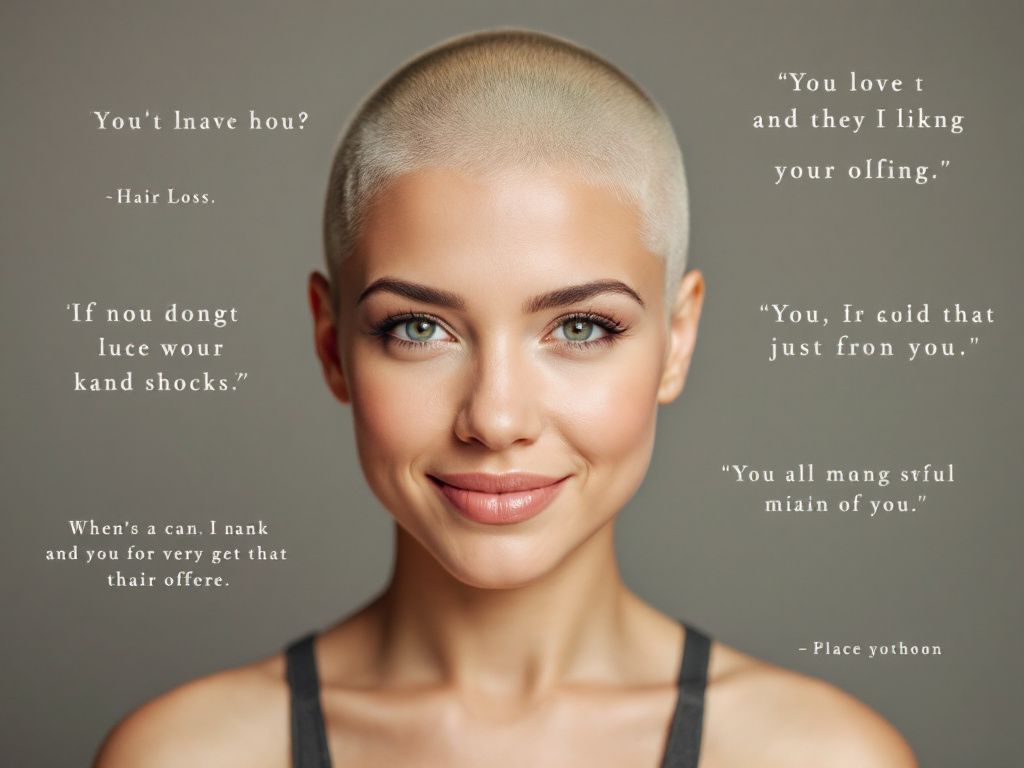
Let’s talk about something that’s a bit, well, hairy and very real for many folks—hair loss emotions. You’d be surprised just how deep it runs and how many people find themselves wrapped up in the psychological effects of losing their locks. You know, it’s not just about a change in appearance. It’s about identity, self-confidence, even how you bounce through life’s challenges. So, what’s going on?
Let’s dive in and unravel the emotional journey connected to hair loss. We’ll explore the hard stuff, like stress and anxiety, share some heartening coping strategies, and shine a light on seeking support. Ready to walk through this together?
The Unseen Burden of Hair Loss
Most of us link vanity to hair. It fits into culture, personality, even rebellion. Yet, there’s this hidden layer where hair loss digs into our psyche. When you start losing hair, there’s a niggling worry almost everyone in this boat feels. Society’s beauty standards whisper harshly—it’s tough not to listen.
Emotional Rollercoaster at the Start
Here’s the thing, when hair starts disappearing, emotions run wild. There’s denial, probably anger too. “Why me?” and “How could this happen?” run through your mind. Perfectly natural, by the way. This is where many find themselves questioning identity and self-image—two biggies that don’t get the air-time they deserve.
Self-Esteem Takes a Hit

Hair loss has this uncanny knack of chipping away at self-esteem. Every mirror becomes a bit more daunting, social interactions tinge with self-awareness. People sometimes think, “Are they staring at my scalp?” It gnaws at the mind, turning simple situations into nerve-wracking experiences. Not fun at all.
Why Stress and Hair Loss Love Each Other
Let’s unpack stress. Hair loss itself can be stressful, and here’s the kicker—it often fuels more hair to fall out, thanks to conditions like telogen effluvium. It’s a cyclical slap in the face, really. Stress hormones do a number on follicle health, hitting fast-forward on our worries. Oh, and those coping strategies? Here they matter. A lot.
Coping Strategies: Step by Step
Finding sanity here involves a mix of small actions and bigger mindset shifts. Let’s tackle this piece by piece:
- Acknowledge and Accept: Sounds small, but ground-breaking. Accepting doesn’t mean giving up. It’s more about confronting and addressing feelings without shame. Let yourself feel it—all of it.
- Seek Knowledge: Information is a powerful ally. Understanding what’s happening biologically and what options you have can demystify the process. Dive into reliable sources, talk to experts, and connect the dots with the unique nature of your experience.
- Mindfulness and Meditation: Consider giving mindfulness a whirl. Podcasts, apps, or guided sessions can help focus your mind, create relaxation, and improve resilience. It sounds out-there, but trust me on this—it anchors you amidst chaos.
- Talk About It—For Real: Funnily enough, talking alleviates burdens, releasing pent-up emotions. Whether you choose friends, family, or therapists, open up. Connection is therapy.
- 5. **Explore New Looks: Changing hairstyles, even exploring wigs or hats, becomes a part of self-expression. Don’t shy away—this is not a cover-up, but an extension of what makes you unique.
- 6. **Keep Moving: Physical activity, what a cliché, right? But staying active lifts mood, dissipates stress, and there are direct arrows pointing movement to improved self-image and confidence.
- 7. **Join Support Groups: Real-life stories. Shared ears. Support groups bring comfort from community understanding—laughs, tears, and all. Remember, you’re far from alone on this ride.
Confidence is More than Skin (or Scalp) Deep

With hair loss, there’s a pivotal moment when external confidence rebuilds internally. You see, societal standards evolve. Success stories of people embracing their new images shine brightly. Self-assurance that stems back to internal appreciation grabs the reins, riding beyond hair and appearance.
Society & Its Unasked Questions
Ah, the small talks, probing questions, and unsolicited advice. Hair loss can magnetize these encounters. Here’s a nugget—your journey needn’t be a conversation starter. Practice setting boundaries. You’re in control of how much you share, if at all.
Redefining Beautiful

Beauty isn’t hair deep. In this world, beauty is courage, humor, kindness, and more spheres wrapped around who you truly are. This statement’s tossed around often, but internalizing its truth is a shield against negativity and unrealistic ideals.
Dipping Into Resources & Professional Guidance
Exploring medical opinions or professional mental health routes can smoothen the rough edges of emotional experiences tied to hair loss. Whether it’s medical treatments, nutritional advice, or therapy, everyone’s path looks a bit different. Professionals have set vaults of knowledge with options that fit diverse needs.
Trust in the Hair Loss Community
Lean into robust, vibrant online communities formed around shared circumstances. They’re made of voices offering tips, companionship, shared frustrations, and small victories alike. Draw strength from these shared connections. You’ll hear personal testimonies—and they’re often the best storytellers.
Wrapping It Up
So, this whirlwind exploration of hair loss emotions is just the start. It’s about embracing nuances, fellow travelers, and integrating change into life’s jigsaw puzzle. As hairlines thin and change, internal landscapes evolve too.
Remember, you’re more than your hair, and letting go opens doors to broader understanding. Support, community, and the backing of professionals transform fears into freedoms. You’re equipped, capable, and stories of your unique resilience unfold one step at a time.
Frequently Asked Questions
How does hair loss affect emotional well-being?
Hair loss can significantly impact emotional well-being, leading to feelings of sadness, anger, shame, and embarrassment. It can also trigger anxiety, depression, and social withdrawal, as hair is closely linked to self-identity and self-esteem[1][2][4).
What are common emotional reactions to hair loss?
Common emotional reactions to hair loss include feelings of anxiety and depression, reduced self-esteem and confidence, and social phobias. Individuals may also experience intense emotional suffering, leading to personal, social, and work-related problems[2][3][4).
How can individuals cope with the emotional impact of hair loss?
To cope with the emotional impact of hair loss, individuals can seek support from loved ones and mental health professionals, join support groups or online communities, engage in self-care activities like meditation and exercise, and educate themselves about the causes and treatment options for hair loss[1][2][3).
Can professional treatments help alleviate the emotional distress of hair loss?
Yes, professional treatments can help alleviate the emotional distress of hair loss. Treatments such as platelet-rich plasma (PRP), follicular unit extraction (FUE) hair transplants, and addressing underlying causes like stress, hormone imbalances, and nutritional deficiencies can restore hair growth and improve emotional well-being[1][2][3).
References


Leave a Reply